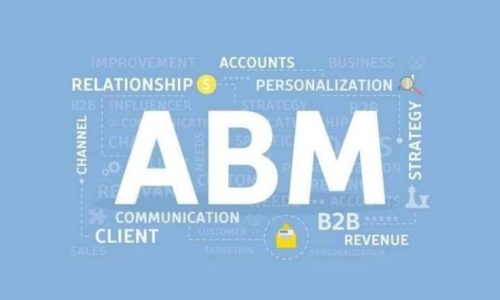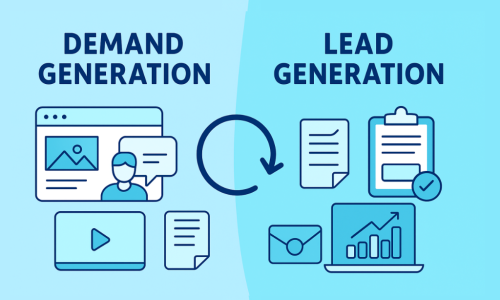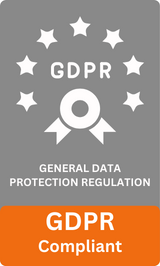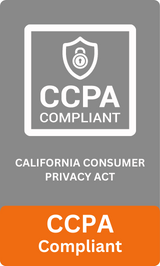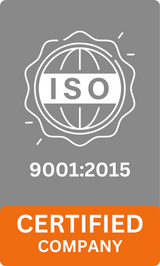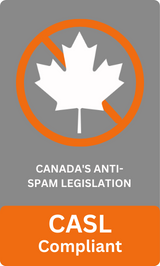
The ability to generate quality leads is the cornerstone of business success for B2B marketers. Lead generation in the B2B sector is significantly different from B2C marketing, primarily because of the complex, high-value transactions, longer sales cycles, and decision-making processes that involve multiple stakeholders. For B2B marketers, understanding the intricacies of lead generation isn’t just essential—it’s critical to their survival and growth in the market.
As the marketing industry continues to evolve, it is becoming more important than ever for them to adopt new strategies, leverage technology, and continuously improve their tactics. In fact, according to a study by HubSpot, “61% of marketers say generating traffic and leads is their top challenge.” This starkly highlights the importance of mastering lead generation in the B2B space.
So, how can B2B marketers generate high-quality leads that will convert into long-term, profitable business relationships? Let’s explore the best practices and strategies to accomplish this goal.
Table of Contents
Toggle1# Understand Your Target Audience and Their Pain Points
The foundation of successful lead generation starts with understanding who your ideal customers are. Unlike B2C marketing, where the target audience can be broad and general, they need to define a more specific and niche audience.
Know Your Buyer Persona
A buyer persona is a semi-fictional representation of your ideal customer based on real data and research. Understanding this persona enables B2B marketers to tailor their content, messages, and campaigns to directly address the specific needs and challenges of their target market. Key data points for them to gather include:
- Company size and industry
- Roles and responsibilities of decision-makers
- Pain points and challenges faced by businesses
- Goals and objectives of businesses
By having a deep understanding of these factors, B2B marketers can create more effective and relevant messaging, increasing the chances of generating high-quality leads.
2# Content Marketing: The Backbone of Lead Generation
Content marketing is one of the most powerful tools B2B marketers have in their arsenal. Creating informative, valuable, and insightful content helps position your business as an industry leader while attracting prospects who are actively looking for solutions to their pain points.
Educational Content
Educational content like blog posts, whitepapers, eBooks, and case studies can help B2B marketers capture leads by offering solutions to potential customers’ challenges. By creating content that addresses specific business issues, B2B marketers can not only attract leads but also nurture them through the sales funnel. According to Content Marketing Institute, “70% of B2B marketers say content marketing has increased the quality of their leads.”
Lead Magnets and Gated Content
Gated content refers to content that requires a visitor to fill out a form or provide contact information before accessing it. This could be a downloadable resource like a whitepaper, report, or template. Lead magnets, such as free tools or assessments, can also be used to attract quality leads in exchange for their contact details. This strategy helps B2B marketers qualify leads effectively.
Webinars and Live Demos
Webinars are highly effective for B2B lead generation. They allow you to engage with prospects, demonstrate your expertise, and answer questions in real time. Webinars often lead to higher conversion rates because they allow prospects to engage directly with the brand and gain trust.
3# Use Social Media Platforms to Amplify Reach
Social media is no longer just a tool for B2C marketers. B2B marketers can leverage platforms such as LinkedIn, Twitter, Facebook, and even Instagram to engage with potential clients, share valuable content, and build a robust network. However, LinkedIn is arguably the most effective platform for B2B lead generation.
LinkedIn: A Goldmine for B2B Marketers
LinkedIn provides numerous opportunities for B2B marketers to generate quality leads. By participating in LinkedIn groups, sharing thought leadership articles, and reaching out to decision-makers directly, B2B marketers can tap into a vast pool of potential clients.
Using LinkedIn’s advanced search capabilities, B2B marketers can identify and connect with key decision-makers within target industries, boosting the chances of generating high-quality leads.
4# Implement Effective Email Marketing Campaigns
Email marketing remains one of the most effective ways for B2B marketers to nurture leads and drive conversions. However, simply sending generic emails won’t cut it. B2B marketers must craft personalized, targeted campaigns to achieve success.
Segmentation and Personalization
Segmentation is the practice of dividing your email list into distinct groups based on shared characteristics, behaviors, or stages in the buying process. By segmenting your leads, you can send them highly relevant content and offers, increasing the likelihood of converting them into customers.
Additionally, personalized emails—such as addressing the recipient by their name or referencing specific pain points or solutions—are far more likely to capture attention and drive engagement.
Nurturing Campaigns
Lead nurturing through email is about building relationships over time. B2B marketers should create email drip campaigns that provide valuable content over an extended period. These campaigns should aim to educate and inform prospects, gradually guiding them toward making a purchase decision.
5# Use SEO and Paid Advertising to Attract Leads
Search engine optimization (SEO) and paid advertising (PPC) are crucial for driving qualified traffic to your website. Both strategies work together to ensure that your business is visible to potential leads when they’re searching for solutions to their problems.
SEO for B2B Marketers
Optimizing your website and content for search engines ensures that you can attract organic traffic from potential customers who are actively searching for solutions within your industry. Using targeted keywords and optimizing content for long-tail keywords will help you rank higher in search results, driving more qualified leads to your site.
PPC Campaigns
Paid advertising, especially through Google Ads and LinkedIn Ads, can help B2B marketers reach a targeted audience with high conversion potential. A well-structured PPC campaign allows you to bid for keywords that are relevant to your business and target decision-makers within specific industries.
6# Partner with Industry Influencers
Influencer marketing has proven effective in the B2C world, but it’s equally beneficial for B2B marketers. Partnering with thought leaders or industry influencers can help you tap into an already established audience and boost your credibility.
Building Trust Through Social Proof
By collaborating with industry influencers, B2B marketers can leverage their authority to gain trust and generate high-quality leads. A recommendation from a well-known figure can greatly influence a potential customer’s decision to engage with your business.
7# Leverage Marketing Automation Tools
Marketing automation tools are invaluable for streamlining the lead generation process. These tools allow B2B marketers to automate repetitive tasks, track lead behaviors, and personalize communication at scale.
Lead Scoring and Qualification
Marketing automation software allows marketers to assign scores to leads based on their behaviors and actions (such as downloading a whitepaper or attending a webinar). This helps prioritize leads who are more likely to convert, improving overall efficiency.
Workflow Automation
Automating workflows for lead nurturing, follow-ups, and segmentation helps B2B marketers stay in touch with leads consistently without manual effort. This ensures that potential customers receive timely communication and increases the chances of conversion.
8# Measure and Optimize Your Lead Generation Strategies
To continuously improve lead generation efforts, B2B marketers need to regularly track and measure their performance. Analyzing data helps marketers understand what’s working and what isn’t, enabling them to make informed decisions and optimize their strategies.
Key Metrics to Track
- Lead Conversion Rate: The percentage of leads that turn into paying customers.
- Cost Per Lead (CPL): How much it costs to acquire each lead?
- Return on Investment (ROI): How much revenue is generated from your lead generation activities?
By tracking these metrics, B2B marketers can adjust their strategies and continue refining their approach to generate high-quality leads.
Conclusion
For B2B marketers, generating quality leads is a multifaceted endeavour that requires a mix of strategies, tools, and ongoing optimization. From understanding the target audience to leveraging content marketing, social media, SEO, and marketing automation tools, B2B marketers have access to a wealth of resources to attract and nurture leads.
The key takeaway? Successful lead generation isn’t just about the quantity of leads—it’s about the quality. By focusing on building relationships, offering value, and addressing the pain points of potential customers, B2B marketers can generate leads that will not only convert but also foster long-term, profitable business relationships.
As B2B marketers continue to innovate and adapt to changing trends, those who can consistently generate high-quality leads will have a significant competitive advantage. By implementing the strategies discussed in this post, B2B marketers can ensure that they are always ahead of the curve and positioned for long-term success in the marketplace.
FAQs
What are the best ways for B2B marketers to generate high-quality leads?
The most effective ways include content marketing, social media engagement, paid advertising, and leveraging marketing automation tools. These strategies help attract and nurture qualified leads over time.
How can B2B marketers identify their ideal customer profile?
Marketers should analyze their current customers, looking for common characteristics like industry, company size, budget, and pain points. This will help create a detailed ideal customer profile (ICP).
Is SEO important for B2B marketers in lead generation?
Yes, SEO is essential as it helps improve the visibility of your content and website, ensuring that your ideal customers find your business when searching for solutions online.
How can email marketing help in lead generation?
Email marketing allows marketers to nurture leads by sending relevant, personalized content that moves them through the sales funnel toward conversion.
What role does AI play in B2B lead generation?
AI tools help B2B marketers predict lead behaviour, personalize content, and automate tasks, making it easier to identify and nurture high-quality leads.
If you want to get quality leads for your B2B business, Sales Demand can help you with its lead generation services. To learn more contact us now.

